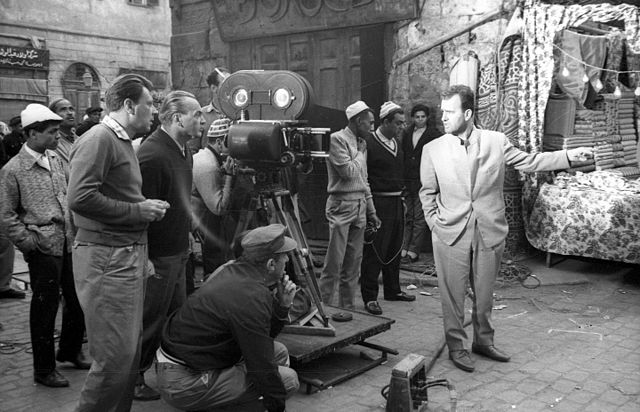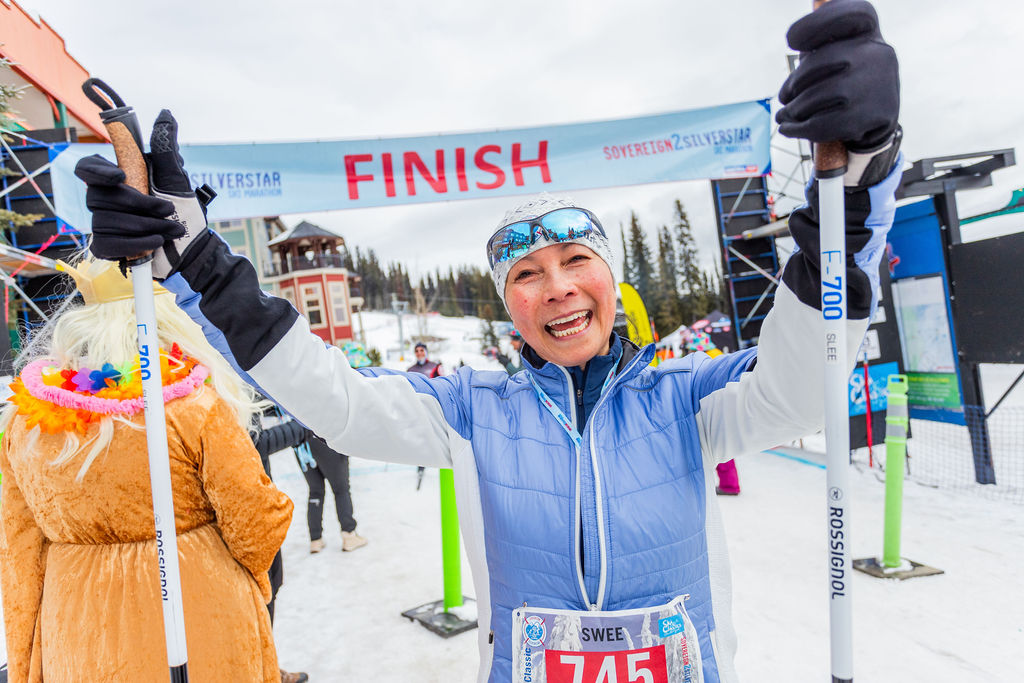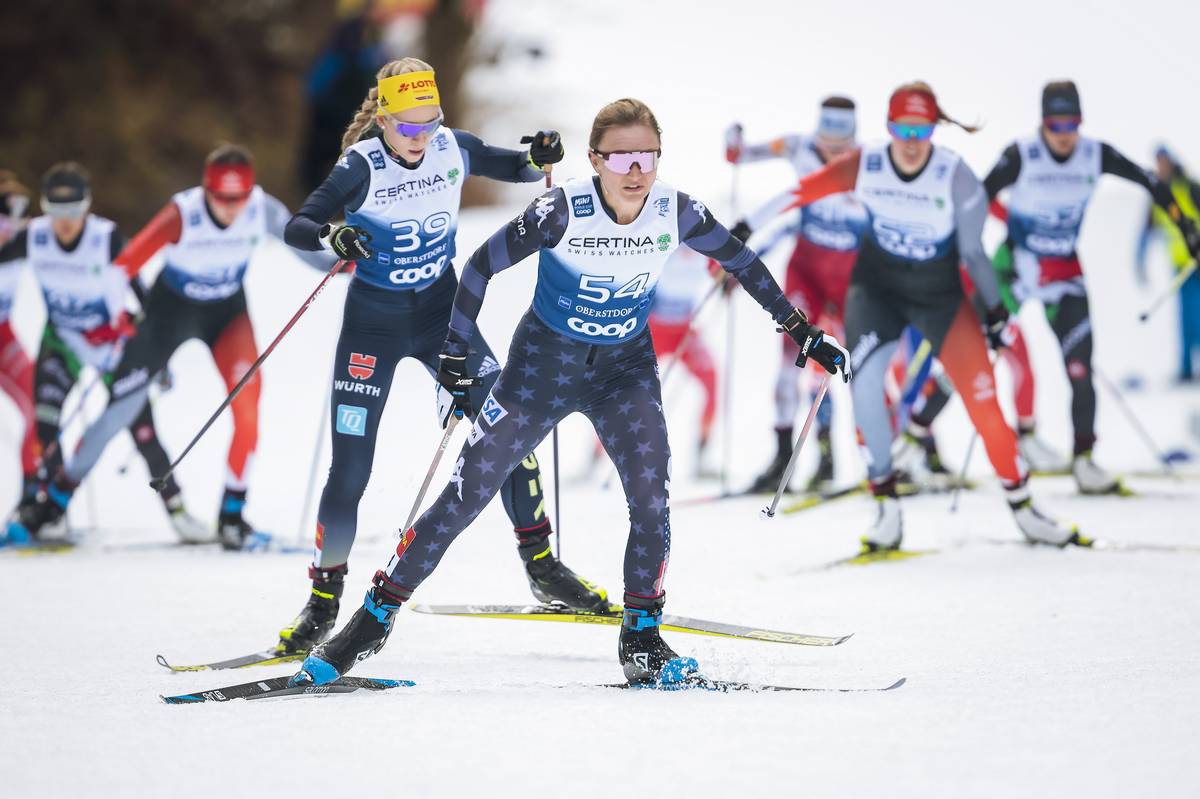
By virtue of his marriage to Beckie Scott, one of Canada’s all-time greatest cross-country skiers, it’s obvious that Justin Wadsworth would be tied into that country’s ski community. But few anticipated his recent appointment as the head coach of the national team, which came after he worked for several years on the World Cup with the American squad.
In one sense, Wadsworth doesn’t face too much of a challenge: the Canadian men pulled down half a dozen top-ten finishes at the 2010 Olympic Games. But the team’s women still have a ways to go, and with recent reports of turmoil in the program’s politics, there should be no shortage of challenges for Wadsworth to tackle. We caught up with him as he was in the car on his way back from a spring ski in Bend, Oregon.
FasterSkier: So, you’re in Bend right now, but you live in Canmore, right?
Justin Wadsworth: We live in Canmore. We bought a house just before the World Cup in Canmore. We live up there, and I’m a permanent resident of Canada—I’m still a U.S. citizen, but I have my full residency. That was already in place anyways, so it was pretty straightforward.
FS: But you’re heading down to Bend for a bit, and will be holding your team’s start-up camp down there?
JW: I did all the housing for the U.S. Ski Team (USST) start-up camp here, and for my [own] first camp, I decided just to make sure it was a really good, well-run camp that I would do somewhere where first, it is the best skiing in the world this time of year, and second I’m really familiar with the area. So I can really dial in rollerski, workouts, strength workouts.
FS: And you guys will be doing some of your workouts with the USST?
JW: Our team is coming down here, and basically we’re skiing the first morning—the same schedule as the U.S. team. [USST Coach Chris] Grover and I really talked a lot about the collaboration between teams, because especially on the sprinting side, there’s a lot both teams can benefit from that hasn’t been there in the past.
We always tried to get [former National Team Leader] Dave [Wood] and their coaches to do workouts with us, and there was always a little bit of resistance, but the athletes are really into it. We’re going to be overlapping almost two weeks with them in New Zealand, too, so we’re really going to try to be more collaborative and take advantage of the resources we have in North America. We have some great skiers, but they really don’t get to go against those other great skiers of the same gender and ability. That’s one of he things that keeps us from getting better in North America. It’s just good and healthy, towards the end of a workout, to push each other—we don’t have enough of that. Hopefully this will help in that regard.
FS: Are you guys thinking about any other collaboration for the year, like teaming up on trips to Europe for OPA Cup races, things like that?
JW: That’s still a little ways down the road. Right now we have the World Cup team, which is six, and the senior development team, which is ten, but most of those ten athletes are at training centers. I think a big part of that has just been the fact that the national team and the senior development team have been a bit unstable in the last few years. Especially with the shakeup with the athletes this spring, a lot of them have more focused in on their local training center. So we have a senior development team, and we really want to develop that, but right now, for this season coming up, we just have to realize that these athletes are probably a little gun-shy of the system and we need to build their trust. So with regard to joining forces on OPA right now, it’s not going to happen. But for sure, it would be great if we could somehow work together. I have visions someday of both teams chipping in and buying a big wax trailer like the Norwegians have—neither team could afford that on their own, but you never know what the possibilities are. I’d really like to build the relationship.
FS: Is this job something that had been on your radar? Were you surprised when you were contacted?

JW: I was definitely a little surprised. I was pretty happy with the job with the USST—we had a really good group of coaches that I thought were working well together. With the exception of the Olympics, I thought things had gone well in the last few years. The athletes on the USST are really talented, and had been good to work with. It’s just an opportunity to coach more on a day-to-day basis in Canmore—like really true coaching, not just at camps and at races like most of our USST coaching opportunities are. The team’s environment with the athletes is really strong. All those things combined, and that we were living in Canada already, it was just a really good opportunity. For me, it was a hard decision for sure—I have a lot of respect and close friendships with the USST coaches and athletes—this was just too big an opportunity for me as a coach to do what I love most, and that’s coach on a day-to-day basis.
FS: You’re inheriting a program that’s been through a lot of changes—you’ll be the fourth coach in the last four years. Is consistency something you’re hoping for?
JW: That’s the real goal from both the administrative side, and the athletes’ side—they really want a long-term commitment, and I’ve given them at least four years. I’m totally committed to the program, and it’s really important for the athletes to know that. When you’re an athlete and you’re working with a coach, you put a lot of trust in with that coach, and it’s hard to build that trust in each year with a new person.
Dave [Wood] is gone—he was kind of always the person that was creating some of these changes with the head coach. Even before Dave left…we already had moved towards making a more long-term commitment to the athletes and the program. I’m going to be wearing the maple leaf in Sochi.
FS: Does that seem like something the athletes are excited about?
JW: The athletes have been really receptive and positive with me. Before I took the job, I went around and talked to all of them and said “Hey, I want to hear it from you, if you want me as your coach. I didn’t want the organization to pick me, and not have the support of the athletes. I feel like I’m supported from both the organization, and the athletes’ side.
FS: So do you know these guys fairly well already? Obviously, living in Canmore, you must have some connections already.
JW: That was part of the appeal to me—I didn’t have to come in and first learn a new system. I had a pretty good idea of how the system ran, with the things they like to do as far as their training structure, and just the athletes [themselves]. I raced against some of them—George Grey, and Devon [Kershaw] was a younger athlete when I was still around. Over the years I had gone to a lot of camps, been up on the Haig Glacier with the team, had a real good relationship with pretty much all of them. It was kind of a natural fit in that respect, too.
FS: So, clearly the Canadian program has been through a lot of changes, but what are some of the things that you think they do well?
JW: The first thing is that the training center system in Canada is really good. There are some really good coaches positioned in those training centers, with the stability there, developing athletes. That’s something I really plan on fostering—I think the relationship can be better still than it has been for the last couple of years. I want to really support their athletes and training system, and their coaches, both with an open ear on my end and also through the year, being there with the national team at least at one or two or three of the training centers for a camp. This summer we’re planning on going back to the Pierre Harvey Training Center [in Quebec] and having a camp there. Next spring, hopefully, we’ll go to the Callaghan Valley for a camp.
It’s really important to keep the development pipeline in Canada open, and fostering that well. The coaches there—Louis Bouchard, who’s kind of Alex Harvey’s personal coach [at the Pierre Harvey Training Center], and then Mike Cavaliere in Canmore, Eric Bailey in Thunder Bay, and Chris Manhard out in Callaghan—those guys are all, I think, really strong coaches, and can help us develop athletes right now onto that Senior Development Team, which is right now kind of on the weak side. But we’re going to sort that out in the next year or two.
The general organization and administration of this team is really strong, and how they use the sport center in Calgary, and the relationship with Own the Podium—some of the resources there are the best in the world. And that was really attractive to me as a coach, to have a budget and system behind [me] that I could count on to do innovative training. Ideas and equipment—just ahead of the curve with everything. That’s an organization that always is forward-thinking—they always had good skis at the Olympics; the [service] staff is one of the best teams in the world. All those things I really want to keep in place and keep fostering.
FS: As far as things you’d like to improve upon?
JW: I guess my biggest goal is that hopefully we’ll get more women on the National Team. Right now we just have two on the World Cup Team, Chandra

[Crawford] and Dasha [Gaiazova]. We need to keep letting the clubs and training centers know that we really need to foster the development of women in this sport in Canada. It kind of ebbs and flows—it wasn’t that long ago it was Sara [Renner] and Becky [Scott] and Milaine [Theriault] and the Fortiers (Amanda and Jaime), and right now it’s a little bit the opposite direction. But hopefully, we’ve identified it with our high performance committee, and we really want to make sure that the women at least have every opportunity they can to make it on the national team.
The only other thing—one of my main goals is to have a little bit more consistency in the World Cup season with the results. It’s super clear that all these athletes on the World Cup team can be in the top-12—they’ve all proven that—but we need to have a little bit more consistency. We do want to peak for World Championships this year, but we need to make sure that we have other periods on the World Cup that we’re skiing really strong. Balancing the training and everything is going to be a big goal of mine.
FS: We heard that there might be some changes to the support team, connected to the shake-up in the program this spring?
JW: We’re currently working on our support team around that. All the data’s preserved, and you know, it’s—there’s parts of that program that needed tuning up anyways. It’s just an opportunity right now to really fine-tune the rest of our support team, and we’re working on that right now and we’ll have more of a firm grip on that in the months to come. We have the base: the same training system that I definitely plan on preserving and working with, and there shouldn’t be too big a gap there this year.
FS: Did you lose anyone from that team?
JW: Right now the physiology team has yet to commit to another cycle. I can’t really say yet—we’re still just talking with them and figuring out what everybody’s doing with them. We share them—there’s two main physiologists in Calgary that work with the winter sports. Whether those guys keep doing their job with the sports center, it’s a little bit up in the air—I can’t say right now. I have a really good idea of the training system, and the biggest thing is monitoring the athletes, and just keeping good tabs on their training, and my goal is to make sure that happens.
FS: With the senior team athletes, how does it work with them? Do you write their plans? I know that Alex Harvey still works fairly closely with his coach at the Pierre Harvey Training Center.
JW: Alex is the one kind of exception—he’s from Quebec and has felt strongly. They had that thing last spring where it was really clear that they didn’t want to pull him out of a special environment back there. The team really respects that. Alex is the one person who has their own personal coach, and then the rest of the team will be working with me—I’ll be writing the training plans with all the other athletes. When Alex comes to the camps, we’ll meld the programs and communicate well with [his coach] Louis [Bouchard] to really make sure that Alex is getting what he needs.
FS: So coming from the U.S., are there things that are done well by the USST that you’d like to bring over to the Canadian team? And vice versa?
JW: The big thing, I think—we in Canada need much more of a sprint focus with the National Team. That really has been something that is lacking, and I think for me, it’s just a big open area that’s really exciting, to give our athletes more of a sprint focus with their training. We have Chandra and Dasha that are great women’s sprinters, and then the guys, Alex and Devon, I think there’s a lot of potential there with their sprinting that really hasn’t been tapped to its full potential.
With guys like Alex and Devon, and even Ivan, to a certain extent, who are overall threats in the Tour de Ski and some of the mini-tours, we really need to take advantage of having a bit more of a sprint focus with the workouts. That’s something that, like I said we’d talked about, is one of the big things that I plan on with the collaboration with the USST—to have a bit more time together doing sprint sessions. And then the vice versa—I think the USST has a lot of things going for it too, but I think for us, the advantage the Canadian team has is just the resources available. Cross Country Canada is a big organization that takes things very seriously, and has a lot of people at all different levels behind it, where maybe the USST is a little diffused, because of the alpine and all these other parts of the system. Cross Country Canada is just taking care of one thing, and that’s cross-country skiing. I’m pretty exciting to have some of the resources I have available to me.
I should have everything I need to make my skiers the best in the world—these guys are so close to taking it to the next level, which is a lot of podiums. I just really feel like right now we should have everything we need to do that. It’s just up to me to get everything together and make it happen.
FS: Last question: 2014 Olympics, you’re still coaching the Canadian team, final leg of the men’s 4×10 relay. Devon Kershaw and Kris Freeman are in the lead, and they come into the stadium together. Who are you pulling for?
JW: I’m rooting for my athlete, Devon Kershaw for sure. Yeah, I’m a citizen of the U.S., and I was on the USST for so many years—I’d be happy either way, but I’d definitely be pulling for Devon to finish Kris off. I’m sure Kris can appreciate that comment—Kris and I go way back. It’s my job right now to win ski races.
Nathaniel Herz
Nat Herz is an Alaska-based journalist who moonlights for FasterSkier as an occasional reporter and podcast host. He was FasterSkier's full-time reporter in 2010 and 2011.



